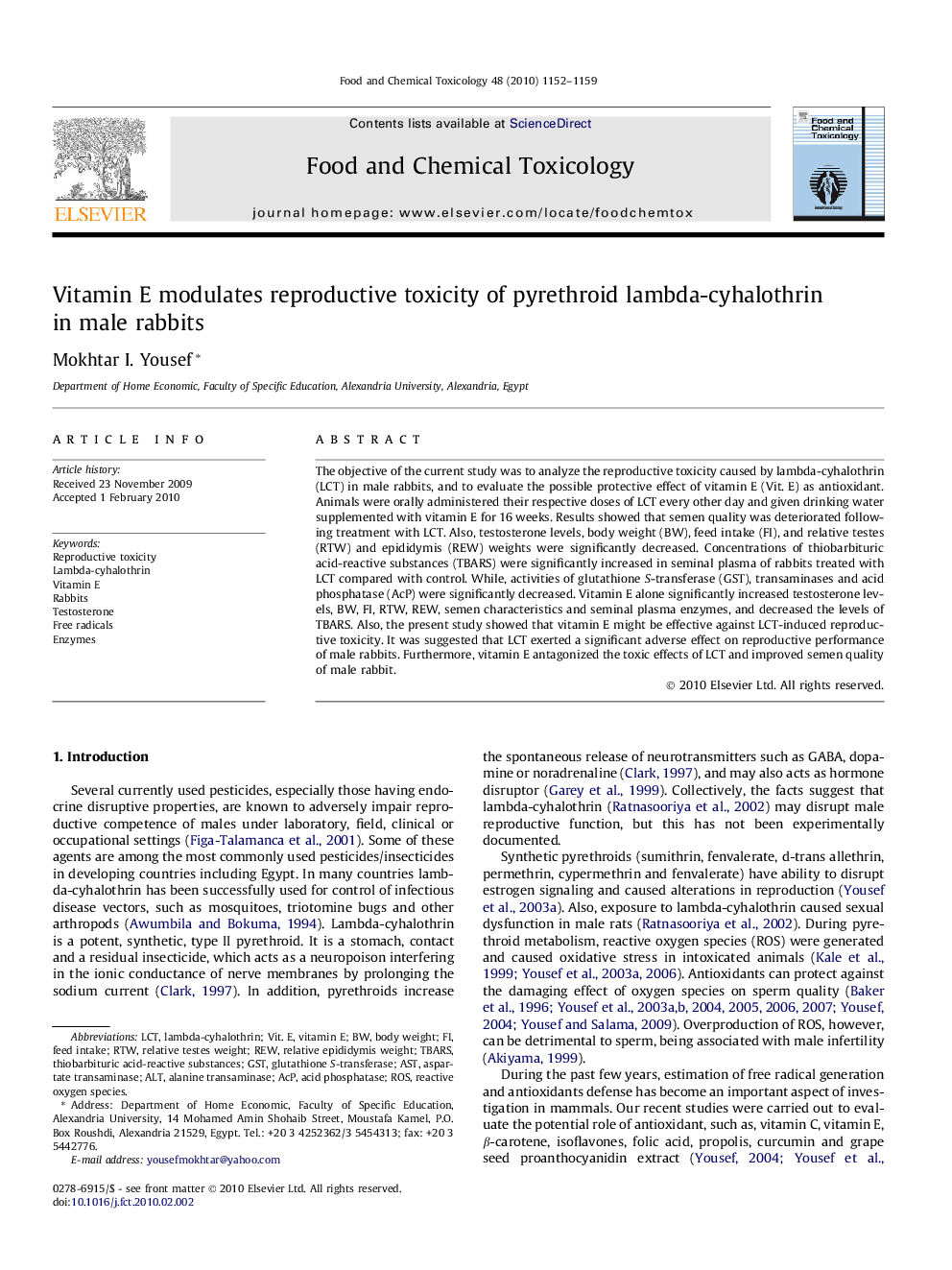| Article ID | Journal | Published Year | Pages | File Type |
|---|---|---|---|---|
| 2585889 | Food and Chemical Toxicology | 2010 | 8 Pages |
The objective of the current study was to analyze the reproductive toxicity caused by lambda-cyhalothrin (LCT) in male rabbits, and to evaluate the possible protective effect of vitamin E (Vit. E) as antioxidant. Animals were orally administered their respective doses of LCT every other day and given drinking water supplemented with vitamin E for 16 weeks. Results showed that semen quality was deteriorated following treatment with LCT. Also, testosterone levels, body weight (BW), feed intake (FI), and relative testes (RTW) and epididymis (REW) weights were significantly decreased. Concentrations of thiobarbituric acid-reactive substances (TBARS) were significantly increased in seminal plasma of rabbits treated with LCT compared with control. While, activities of glutathione S-transferase (GST), transaminases and acid phosphatase (AcP) were significantly decreased. Vitamin E alone significantly increased testosterone levels, BW, FI, RTW, REW, semen characteristics and seminal plasma enzymes, and decreased the levels of TBARS. Also, the present study showed that vitamin E might be effective against LCT-induced reproductive toxicity. It was suggested that LCT exerted a significant adverse effect on reproductive performance of male rabbits. Furthermore, vitamin E antagonized the toxic effects of LCT and improved semen quality of male rabbit.
